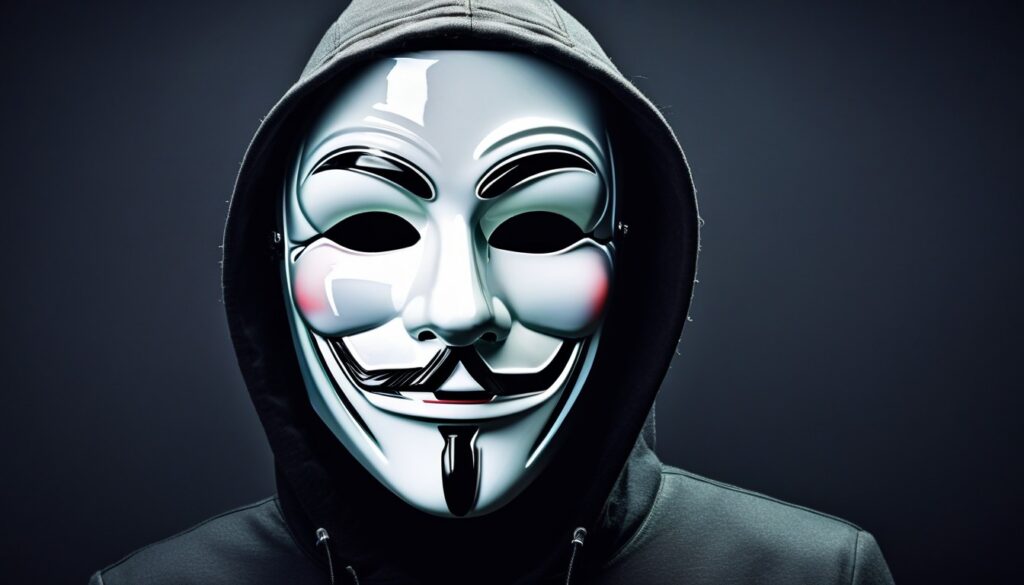Anonymous, the mysterious and infamous “hacktivist” group, has undergone a remarkable evolution since its early days of 4chan trolling. Originally known for their playful and mischievous antics on the internet, Anonymous has transformed into a powerful force for cyberactivism, taking on global issues, including challenging actions by nations such as Russia. In this article, we’ll explore the origins of Anonymous, their progression from online pranks to serious cyberactivism, and their notable confrontations with Russia.

The Birth of Anonymous on 4chan
Anonymous first emerged on the notorious imageboard 4chan, a platform known for its often chaotic and unregulated discussions. The group’s name itself reflects their initial commitment to anonymity, as users on 4chan post without any persistent identity. In the early 2000s, Anonymous was primarily associated with internet pranks, memes, and trolling campaigns, often targeting individuals or groups they deemed deserving of online ridicule.
The Transition to Cyberactivism
As Anonymous grew in both numbers and influence, its focus began to shift from mere internet pranks to more politically and socially motivated activities. The group started using its hacking skills to support causes it believed in or to challenge perceived injustices. The shift from online mischief to cyberactivism was evident in the group’s involvement in prominent incidents such as Project Chanology, where they targeted the Church of Scientology in response to alleged censorship and abuse.
Anonymous and Operation Payback
One of the turning points for Anonymous occurred in 2010 with Operation Payback. The group targeted organizations and entities that they believed were threatening internet freedom, such as the Motion Picture Association of America (MPAA) and the Recording Industry Association of America (RIAA). Their actions included Distributed Denial of Service (DDoS) attacks, which overwhelmed targeted websites with traffic, rendering them temporarily inaccessible.
The Rise of Cybersecurity Concerns
As Anonymous became increasingly involved in cyberactivism, concerns over the legality and ethics of their actions rose. While some praised the group for standing up against perceived injustices, others criticized their methods as anarchic and harmful. Governments and law enforcement agencies worldwide began to take notice, intensifying efforts to track down and prosecute individuals associated with the group.
Anonymous vs. Russia: A Complex Relationship
Anonymous’s confrontations with Russia have added another layer of complexity to their narrative. Russia, with its own history of cyber activities and censorship, became a target for Anonymous’s cyberactivism. The group focused on various issues, including human rights abuses, political corruption, and censorship within the country.
The Impact of Anonymous’s Actions Against Russia
One of the notable incidents involving Anonymous and Russia occurred in 2011 when the group targeted websites associated with the Russian government. In response to allegations of election fraud and censorship, Anonymous carried out DDoS attacks on several Russian websites, making a bold statement against what they perceived as oppressive actions.
Anonymous’s actions against Russia continued over the years, with the group targeting Russian government websites, media outlets, and even revealing alleged corruption within the Russian political elite. These activities, however, have sparked debates about the ethical implications of hacktivism and the potential consequences of engaging in cyber conflicts with powerful nations.
Ethical Questions Surrounding Anonymous
The evolution of Anonymous raises important ethical questions about the role of hacktivism in addressing social and political issues. While some argue that hacktivism serves as a necessary tool for those who lack traditional means of protest, others question the legality and morality of engaging in cyber attacks, even against oppressive regimes.
The Cat-and-Mouse Game Continues
Anonymous’s engagements with Russia highlight the ongoing cat-and-mouse game between hacktivists and state-sponsored cyber forces. The group’s ability to penetrate and expose sensitive information raises concerns about the vulnerability of governments and institutions to cyber threats. On the flip side, critics argue that hacktivist actions, even when well-intentioned, can lead to unintended consequences, escalating tensions and potentially harming innocent individuals.
Conclusion
Anonymous, once synonymous with internet pranks and trolling, has undergone a remarkable transformation into a formidable force in the realm of cyberactivism. The group’s evolution from 4chan mischief to challenging powerful entities like Russia reflects the changing landscape of online activism. As ethical debates continue to surround their actions, Anonymous remains a symbol of the power of collective, decentralized efforts to confront perceived injustices in the digital age. The story of Anonymous serves as a reminder of the complexities and challenges associated with hacktivism, leaving us to ponder the blurred lines between activism, cyber warfare, and the quest for a more transparent and just world.